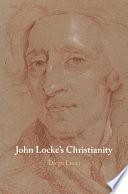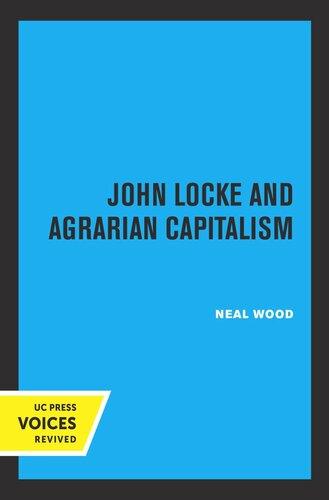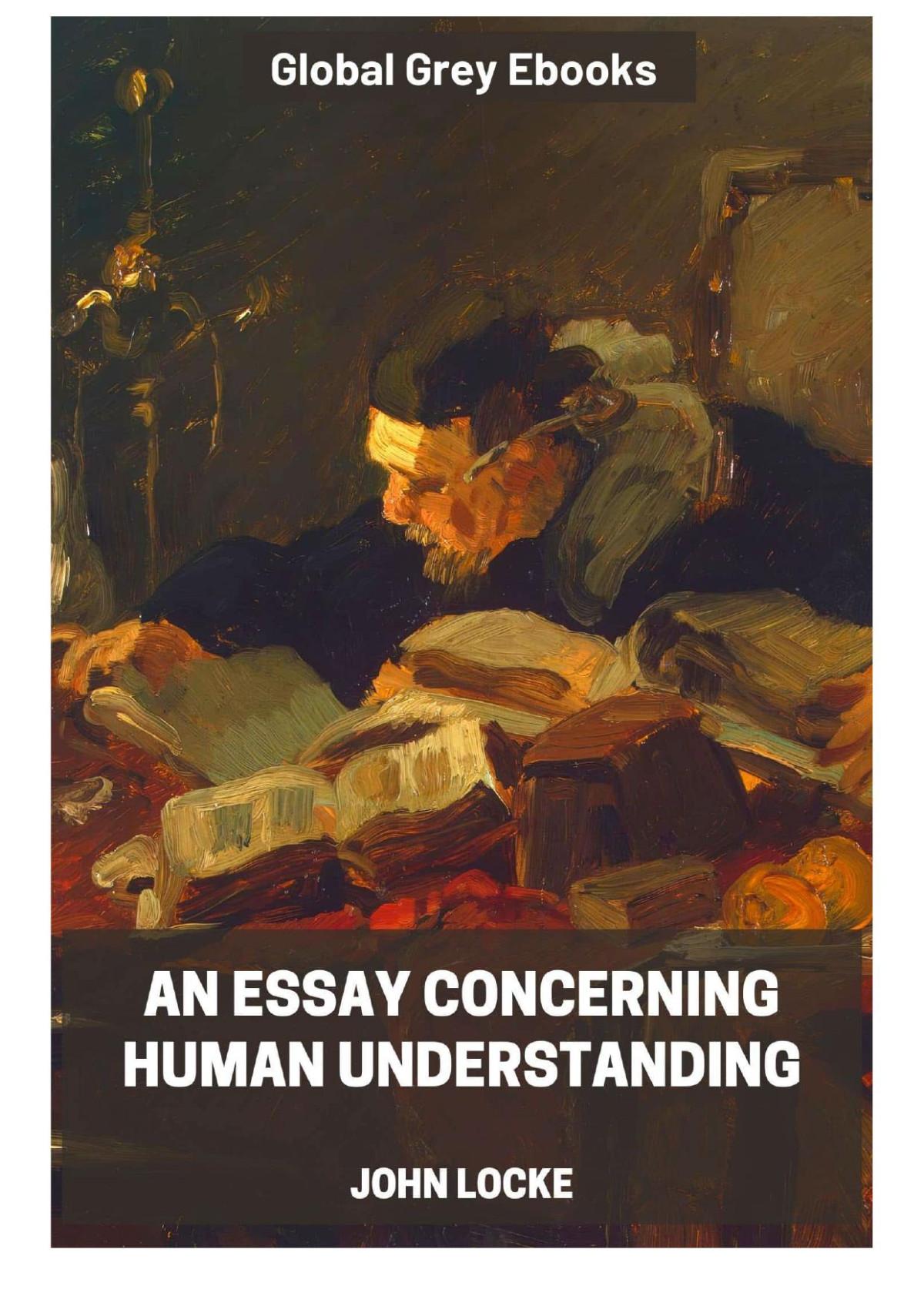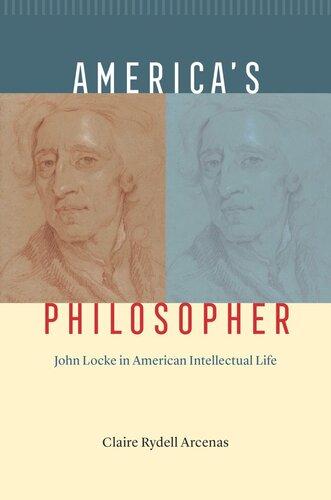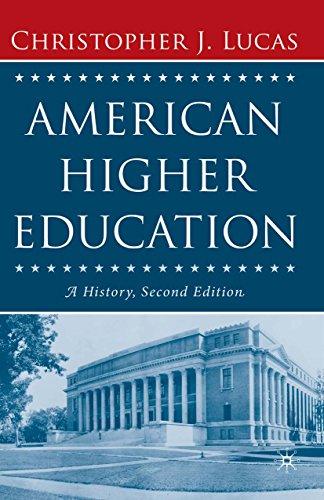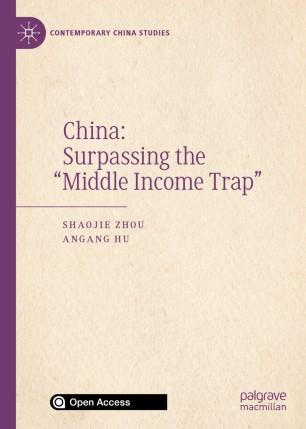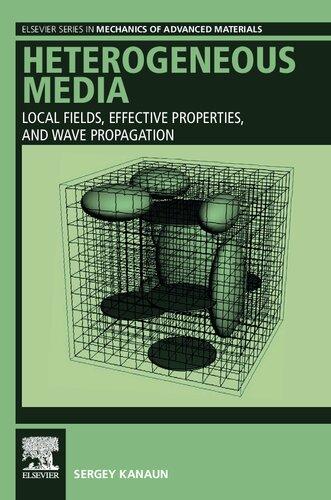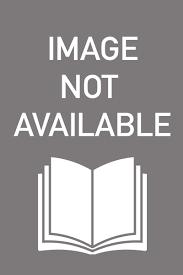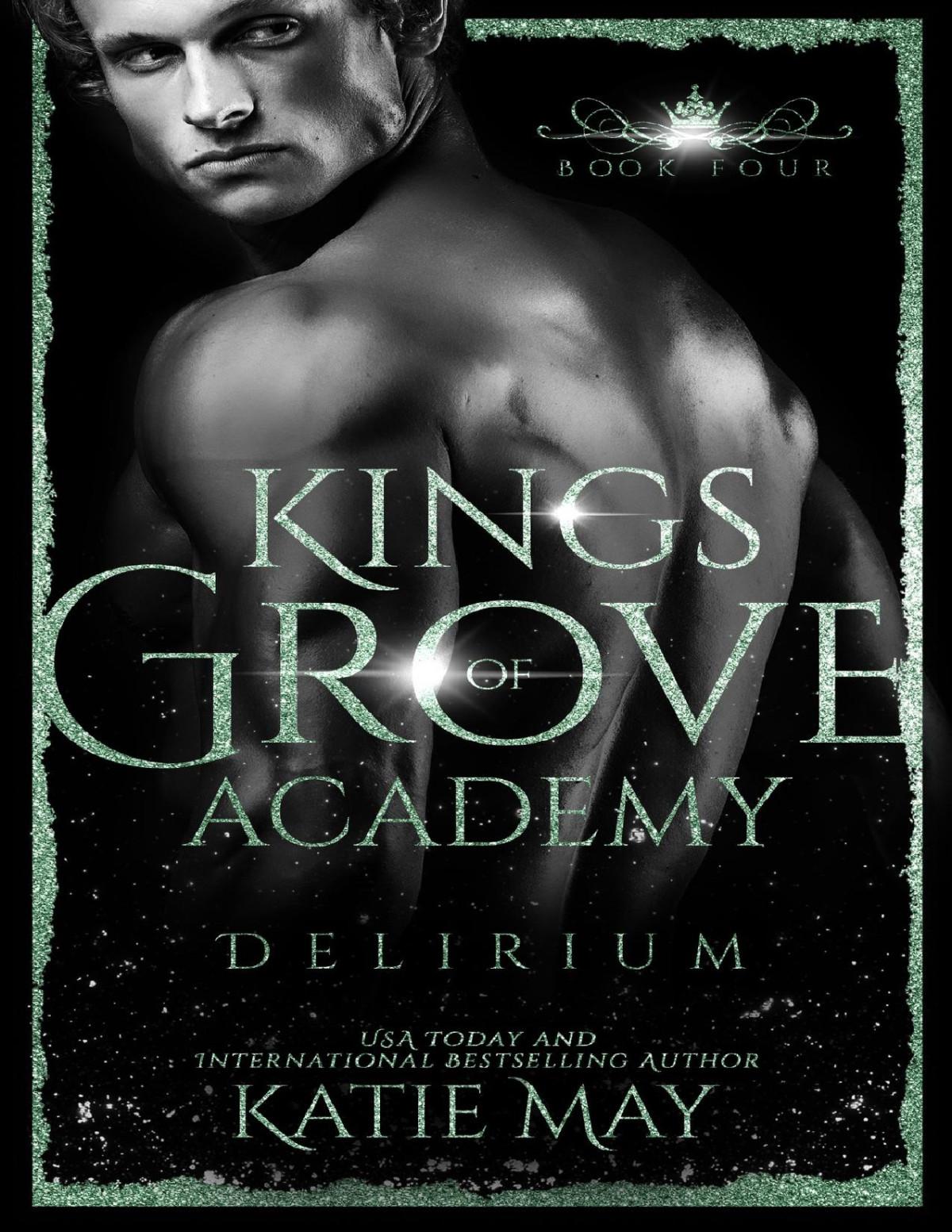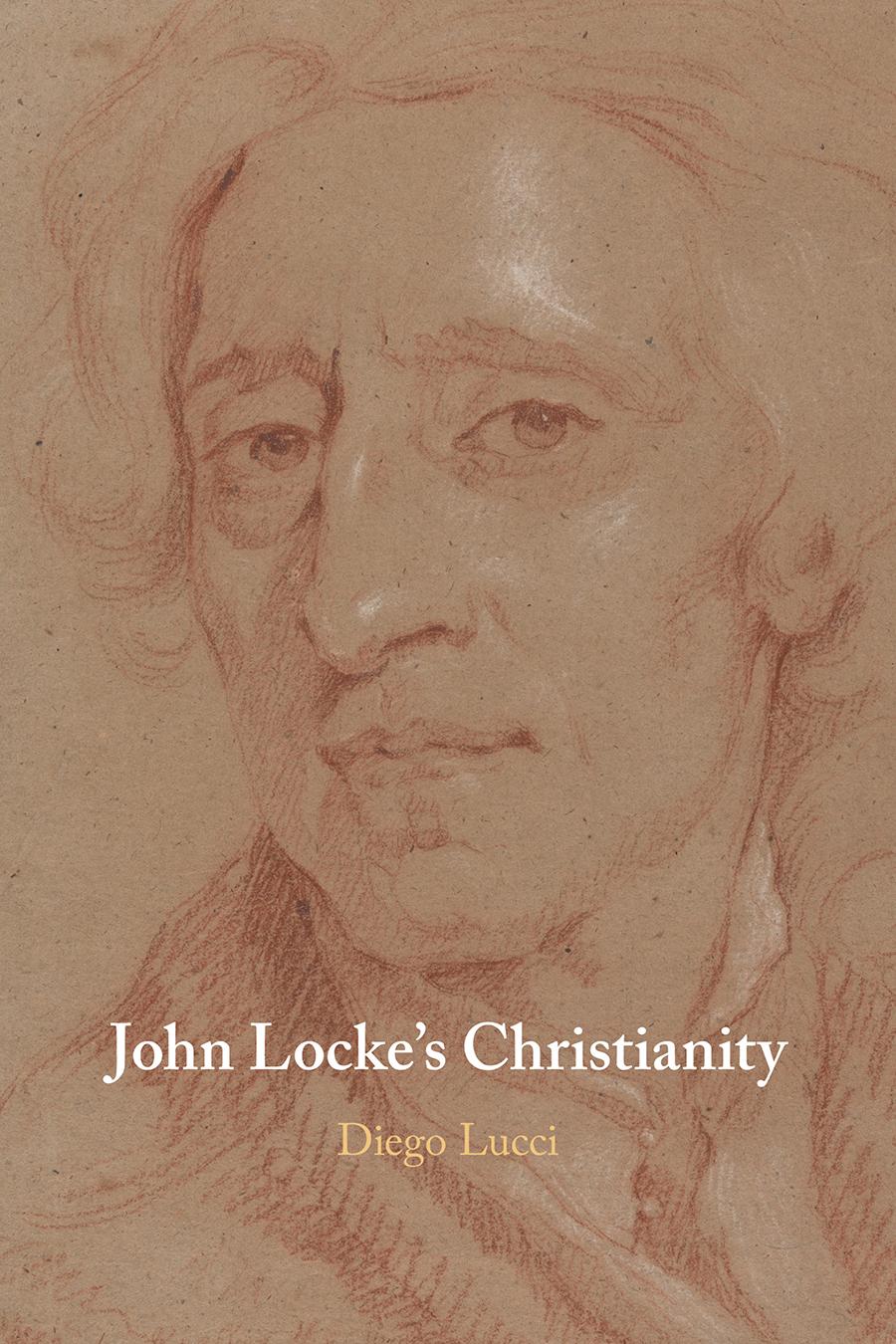Acknowledgments
Thisbookwouldneverhavebeenwrittenwithoutthesupportofseveral institutions.Mysix-monthseniorfellowshipattheMaimonidesCentrefor AdvancedStudies(MCAS),UniversityofHamburg,in2018wascrucialtothe compositionofthisbook.IamthankfultotheMCASanditsfellowsand staff – particularlytotheMCASDirector,GiuseppeVeltri,andtoBillRebiger, MariaWazinski,ChristineWagener,GuidoBartolucci,andTalyaFishman –fortheirattentionandassistance.IamgratefultoGladstone’sLibrary,the InstituteofHistoricalResearchattheUniversityofLondon,andtheInstitute ofResearchintheHumanitiesattheUniversityofBucharestfortheirfellowshipsandhospitality.Igladlyrecognizemydebttomyhomeinstitution,the AmericanUniversityinBulgaria(AUBG),foritscontinuedsupportandtothe faculty,administrators,staff,andstudentsofAUBGfortheirhelpandencouragement.SpecialthanksgotoDavidEvans,LuciaMiree,SteveSullivan, RobertWhite,andEmiliaZankina.MydeepgratitudegoestothePanitza LibraryatAUBGandtheotherlibrarieswhereIdidresearchinrecentyears. Iamgratefultoallthescholarswhohaveinvitedmetopresentmyresearchat theirhomeinstitutions – particularlytoDanaJalobeanu,MihneaDobre,Adam Sutcliffe,MichaelBerkowitz,MarcoForlivesi,PaolaRumore,andCyril SelznerforinvitingmetolectureonLocke.
IamindebtedtoRuthBoeker,VictorNuovo,RaffaeleRusso,Stephen Snobelen,andtwoanonymousreviewersfortheircommentsonvariousparts ofthisbook.IamthankfultoLockeexpertsPeterAnstey,DouglasCasson, PatrickConnolly,SoranaCorneanu,GiulianaDiBiase,MarkGoldie,Jessica Gordon-Roth,BenjaminHill,PaulLodge,AntoniaLoLordo,JohnMarshall, LuisaSimonutti,TimothyStanton,TimStuart-Buttle,KathrynTabb,Jon Thompson,FelixWaldmann,andShelleyWeinbergfortheirattentiontomy research.IamgratefultoRobIliffe,DmitriLevitin,PaulLim,andBrentSirota fortheiradviceconcerningearlymodernTrinitariandebates.Ithankthelate JustinChampion,JamesHerrick,WayneHudson,JonathanIsrael,Margaret Jacob,JamesLancaster,IanLeask,GianlucaMori,MichaelPrince,Giovanni Tarantino,andJeffreyWigelsworthforcontributingtomyunderstandingof
EnglishdeismandLocke’srelationtoit.Mystudieshavebenefitedfrommy interactionwithmanyotherscholars,allofwhomIamgratefulto,although Icannotmentionallofthemhere.Ijustwishtoexpresslythankafew colleaguesandfriends – IordanAvramov,StephenBenin,PaoloLucaBernardini,MatteoBonifacio,MaurizioCambi,PierangeloCastagneto,Tomaso Cavallo,IvoCerman,StephenClucas,StephenGaukroger,DougGeivett, BenjaminGoldberg,ArielHessayon,MichaelHunter,Khafi zKerimov,FabrizioLomonaco,RobertMaryks,RolandoMinuti,RiccardoPozzo,Ronald Schechter,DanielSchwartz,andJamesUngureanu – forsignificantlycontributingtomyunderstandingofseventeenth-andeighteenth-centurythought. SpecialthanksgotomyteachersinNaples,particularlytoGiuseppeLissa, EmiliaD’Antuono,PaoloAmodio,andGiuseppeAntonioDiMarco.
IamimmenselygratefultoHilaryGaskin,HalChurchman,andLisaCarter ofCambridgeUniversityPress,tomyprojectmanagersMegalaiSoupramanianeandMathewRohit,andtomycopyeditorTrentHancockfortheir invaluableassistance.
Myutmostgratitudegoestomymother,Assunta;myfather,Gennaro;my sisterRoberta;andmysister’spartnerValentinofortheirsupport,understanding,andlove.IamgratefultoMaya,Moni,Sylvia,Simona,Veni,andNikol fortheirconstantcare,help,andencouragement.Ithankallmyfriendsand relativeswhohavehelpedandinspiredmeinthecourseofmylife.Thisbook isdedicatedtomywifeBranimiraandmysonDario,whoseunrelenting support,infi nitepatience,andunwaveringlovehaveenabledmetoworkon thisprojectwiththetranquilityandattentivenessneededtocompleteit.
Introduction
JohnLocke(1632–1704)isbestknownforhis “wayofideas” andpolitical theory.Hisempiricistepistemology,whichheexpoundedin AnEssayconcerningHumanUnderstanding (1690),playedacrucialroleinthedevelopmentofmoderntheoriesofknowledgeandsignificantlyinfl uencedthe philosophyoftheEnlightenment.Moreover,hisconceptofstateauthority, whichhetaskedwiththeprocurement,preservation,andadvancementofcivil interests,andhisviewsonreligioustoleration,whichentailedtheseparationof thestatefromreligioussocieties,hadamomentousimpactontheliberal politicaltradition.AlongwithIsaacNewton,Lockewaswidelyconsidered themajorheraldoftheEnlightenmentineighteenth-centuryEuropeand America,tosuchanextentthat,startingatleastinthe1730s,therewasasort of “internationalcult” ofNewtonandLocke.1 Today,morethanthreecenturiesafterhisdeath,Lockeoccupiesasolidpositioninthecanonofearly modernphilosophy,andthestudyofhispoliticalideasiswidelyconsidered essentialtocomprehendingmodernpoliticalthought.Thesignifi canceand influenceofLocke’swayofideasandpoliticaltheoryareundeniable,buthave oftenbeenexaggerated,totheextentthatlabelslike “founderofmodern empiricism” and “fatherofpoliticalliberalism ” aretraditionallyattachedto thisauthor.Locke’sfoundationalroleinthehistoryofmodernempiricismis indeeddebatable,giventheearlydevelopmentsofthisphilosophicaltradition inEnglandbeforeLockeandgiven,also,theskepticalimplicationsofLocke’s wayofideas,asVictorNuovohasaptlynoted:
Fromahistoricalphilosophicalperspective,Bacon,Hobbes,Boyle,andNewtonarethe realfoundersofBritishempiricism,andtheyremainedrobustnaturalphilosophers, notwithstandingtheirpiety,whereasthecustomarytrinityofLocke,Berkeley, 1 B.W.Young, ReligionandEnlightenmentinEighteenth-CenturyEngland:TheologicalDebate fromLocketoBurke (Oxford:ClarendonPress,1998),pp.83–119;JonathanI.Israel, Radical Enlightenment:PhilosophyandtheMakingofModernity1650–1750 (Oxford:OxfordUniversityPress,2001),pp.515–527.
andHume,inspiredbyLocke’sskepticism,leadsintoametaphysicaldeadend,a cul-de-sac.2
Concerningtheliberaltradition,Locke’spoliticalideasdefinitelyplayedan importantroleintheearlystagesofmodernliberalism.However,Ideemit incorrecttodescribehismaturepoliticaltheory,whichheexpoundedin ALetterconcerningToleration (1689)and TwoTreatisesofGovernment (1689,butdated1690),asthestartingpointofthispoliticaltradition.Infact, variouspoliticaldynamics,debates,andwritingsareattheoriginofmodern liberalism,theseedsofwhich,inEngland,maybefoundinthediscussionson popularsovereigntyduringtheCivilWarandInterregnum – particularlyinthe emergenceofwhatQuentinSkinnerhasdefined “theneo-Romantheoryoffree states”3 – althoughonlyinthenineteenthcenturydidtermslike “liberalism ” and “liberal” becomeofcommonusetodefinethispoliticaltradition.Atany rate,anddespitetheexaggerationssurroundingLocke’sintellectuallegacy,his achievementsasaphilosopherandapoliticalthinkerhavesignificantlycontributedtowesternculture.Nevertheless,hisreligiousviewsarecomparatively lesswellknown,althoughtheyarenolessimportantthanhisphilosophicaland politicaltheories,andalthoughhistheologicalideasconditionedhisphilosophicalandpoliticalthoughtinvariousrespects.Lockewasindeeda “religiousEnlightener” whoendorsedreasonablebeliefasthecoordinationof naturalreasonandscripturalrevelation.Thus,whereasIamfarfromendorsing Locke’soranyoneelse’sreligiousworldview,IconsiderathoroughelucidationandreassessmentofLocke’sreligioncrucialtoabetterunderstandingof thisauthor’swork,context,andlegacy.
LockeworkedintensivelyonrefininghisphilosophicalandpoliticaltheoriesduringhisexileintheNetherlandsinthe1680s.HeleftEnglandin1683, undersuspicionofinvolvementintheRyeHousePlottomurderKingCharles IIandhisbrotherJames,althoughitisuncertainwhetherhewasactually involvedinthisplot.IntheNetherlands,hebefriendedsuchfamousscholarsas JeanLeClercandPhilippvanLimborchandtheEnglishQuakermerchantand intellectualBenjaminFurly.FollowinghisreturntoEnglandintheentourage ofPrincessMaryinFebruary1689,duringtheGloriousRevolution,andthe publicationofhismajorpoliticalandphilosophicalworksin1689–1690, LockesettledatOatesManorinEssexin1691.OatesManorwasthehome ofSirFrancisMashamandhiswifeDamarisCudworth,LadyMasham – a daughteroftheCambridgePlatonistRalphCudworthanda “proto-feminist ” philosopher.Lockebroughthislibraryofover2,000volumestoOates,where
2 VictorNuovo, JohnLocke:ThePhilosopherAsChristianVirtuoso (Oxford:OxfordUniversity Press,2017),p.249.
3 QuentinSkinner, LibertybeforeLiberalism (Cambridge:CambridgeUniversityPress,1998).
hedevotedhislateryearsmainlytotheologicalwriting,besidesrevising An EssayconcerningHumanUnderstanding multipletimes.Inthemid-1690s,he wroteandpublishedanonymouslyhismajorbookoftheology, TheReasonablenessofChristianity,AsDeliveredintheScriptures (1695).Hewas subsequentlyinvolvedinheateddisputesabouthisreligiousviews,particularlywiththeCalvinisticdivineJohnEdwards(asonofthePuritanclergyman andheresiographerThomasEdwards)andtheBishopofWorcester,Edward Stillingfleet,concerningmainlytheanti-Trinitarianpotentialofhisreligious andphilosophicalideas.Inhislastdecadeorso,Lockealsowrotemany theologicalmanuscripts,mostofwhicharenowheldattheBodleianLibrary atOxford,andheworkedontheunfinished AParaphraseandNotesonthe EpistlesofStPaul,whichappearedposthumouslyinseveralvolumesbetween 1705and1707.
AlthoughLockewrotehismostimportantworksonreligiontowardtheend ofhislife,hisinterestinreligiousthemespermeatedhisthoughtsinceatleast thelate1650sandearly1660s.Hisbeliefindivinerevelation,inadivine creatorandlegislator,andinanafterlifewithrewardandpunishmentinforms hisphilosophical,political,andmoralviewsinallhismajorworks.Infact, Locke’sphilosophicalmasterpiece, AnEssayconcerningHumanUnderstanding,isnotasecularbook.The Essay tendstowardtheologicalinvestigation sinceitaffirmsGod’sexistenceasacreatorandlawgiver,4 thecrucialroleof biblicalrevelationas “enlarging” naturalreason,5 andtheneedtobelievein things “abovereason” revealedinScripture.6 AsJohnYoltonhasexplainedin TheTwoIntellectualWorldsofJohnLocke (2004),the Essay alsopresents numerousreferencesto “angels,”“spirits,” and “otherintelligentbeings” and providesaprofoundlyreligiousaccountofwhatitmeanstobehuman: “Since thehumansoulturnsouttobeoneofthosespiritsamongtheranksofspirits, wecanlocateman,human finiteBeings,onthechainofbeing.”7 Locke’sway ofideassupportsbeliefintheexistenceofspiritualbeingsinthatthe Essay describesrevelationas “natural Reason enlargedbyanewsetofDiscoveries
4 JohnLocke, AnEssayconcerningHumanUnderstanding,ed.PeterH.Nidditch(Oxford: ClarendonPress,1975),I.iv.9,p.89,II.xxiii.12,pp.302–303,andIV.x.1–6,pp.619–621.In thepresentstudy,Irefertothiseditionwhennotindicatedotherwise.
5 Ibid., IV.xix.4,p.698. 6 Ibid., IV.xvii.23,p.687,IV.xviii.6–10,pp.693–696.
7 JohnW.Yolton, TheTwoIntellectualWorldsofJohnLocke:Man,Person,andSpiritsinthe “Essay” (Ithaca:CornellUniversityPress,2004),pp.7–8.Inthepresentstudy,Iabstainfrom exploringLocke’sconsiderationsontheexistenceofangels,spirits,andotherintelligentbeings fortworeasons.First,Yolton’sbookprovidesathoroughanalysisofthissubjectinparticular. Second,thepresentessayfocusesonLocke’saccountofChristianityinthe Reasonableness and otherreligiouswritings,onthemoralandsoteriologicalimplicationsofhisversionofChristianity,andonphilosophical,moral,andpoliticalissuesthat,althoughcoveredbyLockeinother writings,arerelevanttohisviewsonmoralityandsalvation.
communicatedbyGodimmediately”8 andadmitsconjectureasamethodto “reach” whatsenseexperiencecannotdiscover.WhatLockecalled “the probableConjecturesofReason” playedanessentialpartinbothhisinvestigationofthenaturalworldandhisconsiderationofscripturalrevelation.9 Thus,Locke’sstruggletocomprehendreligioustruthand fi ndthewayto salvationinhislatertheologicalwritingsisincontinuitywithhisphilosophical inquiryinthe Essay.Moreover,Lockewrotethe Essay notonlytoexplorethe foundationsofhumanknowledgeinmattersofnaturalphilosophy,butalsoto shedlightonmorality,whichhedefinedas “theproperScience,andBusiness ofMankindingeneral. ”10 Hispoliticalwritings,too,areinformedbyastrong attentiontomorality,whichheconceivedofinmarkedlyreligiousterms.For instance,in ALetterconcerningToleration,hemaintainedthatthe “Business ofTrueReligion” ismorality(and,consequently,hedeniedtolerationto atheistsandRomanCatholicsmainlyformoralreasons).11 Similarly,inthe SecondTreatiseofCivilGovernment,hedescribedhumanbeingsasGod’s workmanship,servants,andproperty, “sentintotheWorldbyhisorder,and abouthisbusiness”– namely,torespectthedivinemorallawofwhichtheyare bearers.12 Brie fly,Locke’sreflectiononmoralityrunsthroughouthiswork and,beinggroundedintheismandcombinedwithareligious,specifi cally Christianconceptionoflife,uniteshisthought.
SeveralscholarshavehighlightedthereligiousdimensionofLocke’s thoughtsinceJohnDunn’sseminalstudy ThePoliticalThoughtofJohnLocke (1969)calledattentionto “theintimatedependenceofanextremelyhigh proportionofLocke’sargumentsfortheirveryintelligibility,letaloneplausibility,onaseriesoftheologicalcommitments.”13 Whenmakingthispoint, DunnwasreferringespeciallytoLocke’spoliticaltheory.Severalyearslater, JohnColman’sbook JohnLocke’sMoralTheory (1983)discussedtherelation ofLocke’sreligiousideastohismoralphilosophy,whichColmandescribedas a “consistenttheologicalethic” groundedinLocke’sconsiderationofGod’s Creationandofhumanity’spositionintheCreation.14 Dunn’sandColman’s
8 Locke, Essay,IV.xix.4,p.698.
9 Ibid.,IV.xviii.8,p.694.SeeYolton, TwoIntellectualWorlds,pp.47–54.
10 Locke, Essay,IV.xii.11,p.646.
11 JohnLocke, “ALetterconcerningToleration,” inJohnLocke, ALetterconcerningToleration andOtherWritings,ed.MarkGoldie(Indianapolis:LibertyFund,2010),pp.1–62(8,49–53).
12 JohnLocke, TwoTreatisesofGovernment,rev.ed.,ed.PeterLaslett(Cambridge:Cambridge UniversityPress,1988),p.271.
13 JohnDunn, ThePoliticalThoughtofJohnLocke:AnHistoricalAccountoftheArgumentofthe “TwoTreatisesofGovernment” (Cambridge:CambridgeUniversityPress,1969),p.xi.See, also,RichardAshcraft, “FaithandKnowledgeinLocke’sPhilosophy,” inJohnW.Yolton(ed.), JohnLocke:ProblemsandPerspectives (Cambridge:CambridgeUniversityPress,1969), pp.194–223.
14 JohnColman, JohnLocke’sMoralPhilosophy (Edinburgh:EdinburghUniversityPress,1983), p.9.
conclusionsregardingLocke’spoliticalandmoralideascanbeappliedtoother partsofhisthought.Inthepastfourdecadesorso,severalstudieshave stressedthesignifi canceofLocke’sreligiousinterests,concerns,andviews tovirtuallyallareasofhisphilosophicalproduction.Inthisregard,Nicholas Wolterstorffhascorrectlynotedthat “astrikingfeatureofLocke’sthoughtis thatreligiousconsiderationsenterintoallpartsofhisthought.”15 Moreover,in arecent,excellentmonograph, JohnLocke:ThePhilosopherAsChristian Virtuoso (2017),VictorNuovohashighlightedthereligiouscharacterof Locke’swork,particularlyofhislogic,physics,ethics,andtheology:
Locke’sphilosophicalworkisclarifiedandexplainedwhenitisconsideredasthe productionofaChristianvirtuoso,whichistosay,ofaseventeenth-centuryEnglish experimentalnaturalphilosopher,anempiricistandnaturalist,whoalsoprofessed ChristianityofasortthatwasinfusedwithmoralseriousnessandwithPlatonic otherworldlinessoverlaidwithChristiansupernaturalism.16
IconcurwithNuovo’scharacterizationofLockeasa “Christianvirtuoso,” becauseLockealwaysviewednaturalreasonandbiblicalrevelationasmutuallysustainingandcomplementary.Locke’stheologicalconcerns,interests, andideasindeedpervadehisphilosophical,political,andmoralthought. Consequently,Locke’soeuvreinitsdifferentareasistheproductionofa Christian philosopher.ButLocke’sreligiousviewsaresignificantforyet anotherreason,ashistheologicalrefl ectionsresultedinauniqueversionof Christianity.AlthoughLockeexpoundedhisreligiousviewsunsystematically, givenalsohisdislikeofsystemsofdoctrineandhishostilitytoclaimsof religiousorthodoxy,anoriginalandinternallycoherentformofProtestant Christianityemergesfromhispublicaswellasprivatewritings.Inthepresent study,Iaimtoprovideathorough,comprehensive,systematicreconstruction ofLocke’sChristianity,whichIconsiderinitscomplexityandoriginality.To thispurpose,Iconcentrateon TheReasonablenessofChristianity andother writingsonreligionthatLockecomposedinhislateryears.Ialsotakeinto accountLocke’sreflectionsonsubjectsrelevanttohismoralandsoteriological investigationsinhisphilosophicalandpoliticalworks.Whileacknowledging thatLocke’swritingsindifferentareasrepresentdifferentprojects,Idisagree withPeterLaslett’s,JohnDunn’s,andothers’ claimthatLocke’sworkis affectedbyasortofincoherence,whichtheseinterpretershavedescribedas resultinglargelyfromthetheologicalcommitmentsthatconditionedhis
15 NicholasWolterstorff, “Locke’sPhilosophyofReligion,” inVereChappell(ed.), TheCambridgeCompaniontoLocke (Cambridge:CambridgeUniversityPress,1994), pp.172–198(174).
16 Nuovo, JohnLocke,p.1.
philosophical,moral,andpoliticalinquiries.17 IratheragreewithJohn Marshall,VictorNuovo,andotherswhosestudieshavepointedtotheinternal coherenceofLocke’sthoughtconsideredinitsentirety. 18 Therefore,the presentbookarguesthatLocke’sdifferentprojectscohereandthatthereligiousdimensionpervadingvirtuallyallthepartsofhisthoughtisoneofthe mainfactorsdeterminingthiscoherence.
BesidesexaminingseveralworksbyLocke,thepresentstudyconsidersthe intellectualcontextofhisreligiousthoughtandhisinvolvementwithvarious theologicalcurrents.Locke’sreligiousideasareProtestantinnatureinthat,as Lockehimselfoftendeclared,headheredtotheProtestantdoctrineof sola Scriptura,accordingtowhichtheChristianScripturesaretheonlyinfallible ruleoffaithandpractice.Nonetheless,Locke’sreligionpresentsseveralpoints incommonwithheterodoxChristiancurrentssuchasSocinianism(foundedby theItaliananti-Trinitarianandanti-CalvinistauthorFaustusSocinusinthelate sixteenthandearlyseventeenthcentury)andArminianism(namedafterthe Dutchanti-CalvinistthinkerJacobusArminius,professoroftheologyat Leidenfrom1603tohisdeathin1609).VarioussimilaritiesbetweenLocke’s theologicalideasandSocinianandArminianviewshaveledArthur Wainwrighttoconcludethat “onthetheologicalmapofhisday[Locke]was somewherebetweenSocinianismandArminianism.”19 BothSociniansand Arminiansfocused,likeLocke,ontheinterplayofbiblicalrevelationand naturalreason.AnemphasisonScriptureandreasonascomplementaryled Socinians,Arminians,andLocketorejectecclesiasticaltraditionanddeny,or atleastdisregard,doctrinesthattheyconsideredunscripturalorirrational.This approachwasinspiredbyProtestantstandardobjections,advancedby LutheransandCalvinistsaswell,toecclesiasticaltradition,whichisthe Catholicruleoffaith.However,Socinians,Arminians,andLockerejectedas unscripturalorirrationalevensomeofthebasictenetsofmainstreamProtestantism,especiallyregardingsoteriologicalissues.Basedontheirreadingof Scripture,theyallarguedthattheessenceofChristianityliesinafewsimple principlesthatcanbededucedunambiguouslyfromthebiblicaltext.Therefore,Socinianism,Arminianism,andLocke’sreligion,alongwithotherProtestantireniccurrentsandauthors – fromJacobAcontiusandRichardHooker intheElizabethanEratotheArminian-in fl uencedEnglishlatitudinariansof
17 PeterLaslett, “Introduction” toLocke, TwoTreatises,pp.3–126;Dunn, PoliticalThought Laslett’seditionof TwoTreatises,withhisintroduction, firstappearedin1960.
18 JohnMarshall, JohnLocke:Resistance,ReligionandResponsibility (Cambridge:Cambridge UniversityPress,1994);Nuovo, JohnLocke
19 ArthurW.Wainwright, “Introduction” toJohnLocke, AParaphraseandNotesontheEpistles ofStPaultotheGalatians,1and2Corinthians,Romans,Ephesians,ed.Arthur W.Wainwright,2vols.(Oxford:ClarendonPress,1987),vol.1,pp.1–88(58).
theseventeenthcentury – wereexpressionsofthe “wayoffundamentals.”20 Oneofthemaincommonfeaturesofthecurrentsandauthorsrepresentingthe wayoffundamentalswastheiroppositiontoCalvinistpredestinarianism,with theconsequentadoptionofamoralistsoteriology.Highlighting,albeitto differentextents,theroleofthehumanwillandreasoninacceptingGod’s assistinggrace,theyregardedbothgraciouslyenabledfaithandmoralworks ascontributingtosalvation.Locketoo,likeSociniansandArminians,rejected predestinationandupheldamoralistsoteriology.Histheologicalwritings presentseveralothersimilaritieswithSocinianismandArminianism.For instance,hesharedtheSocinians’ rejectionoforiginalsin,theiremphasison Christ’sresurrectionandexaltation,andtheirmortalistviews,whichwerein linewith thnetopsychism ,namelythedoctrinethatthesouldieswiththebody andwillneedadivinemiracletoberesurrectedonJudgmentDay.Concerning Locke’srelationtoArminianism,hisconceptofgraceas assisting gracewas consonantwiththebasicprinciplesofArminiansoteriology.Furthermore,his viewsontheatonementwereinconsistentwiththesatisfactiontheoryand echoed,instead,thegovernmentaltheoryformulatedbyHugoGrotius(who wasanArminianintheologicalmatters)andlateradoptedbyLimborchand otherArminians.
20 Severalhistorianshavequestionedtheaccuracyandusefulnessofthecategory “latitudinarianism.” See,forinstance,JohnSpurr, “‘Latitudinarianism’ andtheRestorationChurch,” The HistoricalJournal,31:1(1988):pp.61–82;DmitriLevitin, AncientWisdomintheAgeofthe NewScience:HistoriesofPhilosophyinEngland,c.1640–1700 (Cambridge:Cambridge UniversityPress,2015),pp.13–21,143,542–545.Spurr,Levitin,andothershaveconcentrated onsomesubstantialdifferences,indoctrinalandecclesiologicalmatters,betweenvarious authorscommonlytermed “latitudinarians.” Moreover,theyhavecalledattentiontotheabsence ofa “latitudinarianparty” inpost-RestorationEngland.Nonetheless,Ideemitappropriateto usethecategory “latitudinarianism,” whichisrootedinthelabeling,andself-labeling,of severalArminian-influencedChurchofEnglanddivinesas “latitude-men” or “latitudinarians.” I findthiscategoryusefultodenotebeliefsandattitudessharedbyagroupofclergymen including,amongothers,EdwardStillingfleet,JohnTillotson,EdwardFowler,andGilbert Burnet.The “latitude-men” upheldamoralistsoteriologyemphasizinghumanreason,freewill, andmorality. Contra Calvinistpredestinarianism,theymaintainedthathumanbeingsareableto acceptorresistGod’s assisting graceandthatgoodworkscontributetosalvation.Moreover,the latitudinariansaimedtorelaxthetermsofconformityinsuchamannerasto “comprehend” ProtestantDissenters – or,atleast,theleastradicalDissenters – withintheChurchofEngland. Finally,thelatitudinarianswerekeentocooperatewiththepoliticalauthoritiesandtograntthe latterasignificantroleinecclesiasticalpolicy-making,particularlyaftertheGlorious Revolution,whiletheHighChurchpartyadvocatedalargerautonomyfortheChurch.See MartinI.J.GriffinJr., LatitudinarianismintheSeventeenth-CenturyChurchofEngland (Leiden:Brill,1992);WilliamM.Spellman, TheLatitudinariansandtheChurchofEngland, 1660–1700 (Athens:UniversityofGeorgiaPress,1993).OnlatitudinarianismandLocke,see JohnMarshall, “JohnLockeandLatitudinarianism,” inRichardW.F.Kroll,RichardAshcraft, PerezZagorin(eds.), Philosophy,Science,andReligioninEngland1640–1700 (Cambridge: CambridgeUniversityPress,1992),pp.253–282;G.A.J.Rogers, “LockeandtheLatitudeMen:IgnoranceAsaGroundofToleration,” inKroll,Ashcraft,Zagorin(eds.), Philosophy, Science,andReligion,pp.230–252.
Brie fly,LockewaswellacquaintedwiththemaintenetsofSocinianism, Arminianism,andstillothertheologicalcurrentsandauthors – especially EnglishcurrentsandauthorsbelongingtotheProtestanttraditionoftheway offundamentals.Hetookintoaccountthesetheologicalcurrentsinhisreflectionsonreligiousissues,particularlyinhismanuscripts,andhefoundtheir viewscompatiblewithhisownconclusionsconcerningseveraltheological subjects.But,whenreflectingontheologicalmatters,Lockealwaystookthe Bibleashispointofreference,forheregardedScriptureastheultimatesource ofreligioustruth.Accordingly,hewasalwayscarefultomakesurethathis conclusionswereinlinewith,andindeedgroundedin,thebiblicaltext.21 Locke’sconvictionthatnaturalreasonandscripturalrevelationwerecomplementaryandmutuallysustaininginformedhistheologicalinvestigations,his biblicalhermeneutics,andhisconsiderationofspeci fictheologicaltraditions. Thus,hedidnothesitatetodisagreewiththeSocinianswhenhejudgedsome oftheirdoctrinestobeatoddswithscripturalrevelationandnaturalreason.In fact,LockedidnotshareSocinus’soutrightdenialoftheatonement. Furthermore,heconceivedoftheLawofNatureascreatedbyGod,reaf firmed andcontainedintherevealedLawofFaith,andhenceeternallyvalidinits entirety.Conversely,accordingtoSocinusandhisfollowers,God’sRevealed WordcontradictedandinvalidatedsomepartsoftheLawofNatureand,thus, replacedit.Finally,Locke’sChristologywasnotSocinianproper,becausein the Paraphrase hehintedatChrist ’spre-existence.Though,henevertalkedof theSonasadivineperson,andhisChristologywasnotArianproper,given alsohisSocinian-likeemphasisonChrist’sresurrectionandexaltation.He developedanoriginalChristology,presentingbothSocinianandArianelementsbutirreducibletoSocinianismorArianism.Likewise,Locke’smortalism, hisexplicitandunambiguousdenialoforiginalsin,andhispublicsilenceon theTrinityplacehisreligiousthoughtoutsideoftheArminiantheological tradition.Therefore,whereasWainwright’spositioningofLocke’sreligion “somewherebetweenSocinianismandArminianism” onthe “theological mapofhisday” makessense,LockewasneitheraSociniannoranArminian. Locke’sreligioncannotbeassimilatedtoanytheologicalcurrentinparticular, foritisaunique,original,Scripture-basedformofProtestantChristianity, whichthepresentstudyattemptstoclarifyinitsvariousaspectsand implications.
21 Asaconforming,practicingmemberoftheChurchofEngland,Lockeacceptedthebiblical canonofthischurch.HeownedandannotatedseveralBibles,including,amongothers,a 1648EnglishBibleprintedbyWilliamBentley:LL309,BODLocke16.25,BentleyBible, interleaved.HealsousedapolyglotNewTestament:LL2864,BODLocke9.103–9.107, Le NouveauTestament (Mons,1673),interleavedandboundin5vols.
Chapter1, “TheContextandBackgroundofLocke’sBiblicalTheology,” explainsthereasonsthatledLocketopublishhisreligiousideasinthemid1690s.ThischapterfocusesonLocke’soppositiontoantinomianismand deismandonhissearchforscientificortheoreticalfoundationsformorality. WhileLockerefusedantinomianismasdenyingtheefficacyofgoodworksto salvation,heopposedthedeisticnotionofthereligionofnatureassuf ficientto salvation,andherejectedthedeisticviewofJesusasmerelytherestorerofthe LawofNature.HejudgedbothmoralconductandfaithinJesus asthe Messiah tobecrucialtoeternalsalvation,asheexplainedin TheReasonablenessofChristianity.Amarkedlyreligiousconceptionoflifeandmorality, however,pervadedLocke’smoralinquirymuchbeforethecompositionofthe Reasonableness.Inthe SecondTreatiseofCivilGovernment and AnEssay concerningHumanUnderstanding,hedescribedobediencetotheGod-given morallawasadutytowardthedivinecreatorandlegislator.22 Heregardedthe divinemorallawasdiscoverablebynaturalreason(atleastinprinciple)or throughdivinerevelation.Lockebelievedthatnaturalreasoncouldnotcomprehendalldivinerevelations.However,hearguedthatassenttoanything, includingthestatusofarevelationasdivine,oughttobebasedonrational assessment.Therefore,heabhorredenthusiasts’ claimstodivinerevelation unsubstantiatedbyrationalassessmentandinspired,instead,byirrational drivesandtheirunwillingnesstoemploytheirrationalcapabilities.While comparingnaturalreasontoa “dimcandle,” heaffirmeditsaptnesstoserve purposesthat “maybeofusetous.”23 Nevertheless,the Essay containsno rationaldemonstrationofmoralprinciples.Lockeacknowledgedthelimitationsofhumanknowledgeinmattersofmoralityandreligion,althoughhe thoughtthatethicsandtheologyhaddifferentepistemologicalstatuses,since heregardedmoralityasdemonstrable(atleastinprinciple)whileheconsideredmosttheologicalknowledgeasfallingwithinthescopeofprobability –withthesigni ficantexceptionofourknowledgeofGod’sexistence,whichto Lockeisdemonstrativeandimpliesanunderstandingthatwehaveduties towardourcreator.Hispainstakingsearchforthefoundationsofmorality eventuallyledhimtoresolutelyturntobiblicaltheologyinthe Reasonableness.Inthistreatiseonthequestionofjustifi cation – namely,onwhatitisthat “justi fies” humanbeingswhohavesinnedand,hence,enablestheirsalvation –Lockecontinuedhismoralinquiry;but,insteadofinvestigatingtheepistemologicalfoundationsofethics,heaimedtopromotethepracticeofmoralityand thedevelopmentofmoralcharacterthroughaScripture-basedtheological ethics,asthefollowingchaptersexplain.
22 Locke, TwoTreatises,p.271;Locke, Essay,IV.iii.18,p.549,IV.xviii.5,pp.692–693.
23 Ibid., IV.xix.8,p.700,I.i.5,pp.45–46.
In Chapter2, “EngagingwithScriptureandHeterodoxy,” Iexamine Locke’sapproachtoScriptureandhisinvolvementwithSocinianismand Arminianism.Afteroutliningthetenetsofthesetheologicalcurrents andclarifyingLocke’sfamiliaritywithSocinianandArminiantexts,ideas, andintellectuals,thischapteranalyzesLocke’suseofSocinus’sproofof Scripturalauthority.SinceLockeclaimed,inthe Reasonableness anditstwo vindications(writtenagainstEdwards’schargeofSocinianism),thathis accountoftheChristianreligionwasbasedonScripturealone,heneededto provethedivineauthorityofScripture.Tothispurpose,hefollowedSocinus inhighlightingtheexcellenceofChrist’smoralprecepts,inpointingoutthe consistencyofOldTestamentMessianicprophecieswiththeirful fillmentin theNewTestament,andindescribingJesus’ miraclesasconfirminghis Messianicmission.AccordingtoLocke,biblicalmiracles,althoughbeingonly secondaryevidenceofChrist’sandotherdivinemessengers’ mission,havea divineoriginandcaneasilybedistinguishedfromfakeordemonicwonders,in thatbiblicalmiracleseitherglorifyGodorrevealmattersofgreatconcernto humanity(e.g.,mattersrelevanttodeliveranceandredemption).Locke’sproof ofscripturalauthorityenabledhimtodevelopahistoricalmethodofbiblical interpretation,accordingtowhichheconsideredthebiblicaltextsinrelationto boththeirrespectivecontextsandthebiblicaldiscourseasawhole.Locke emphasizedtheinternalconsistencyofScripturebutmadeadistinction betweentwolevelsofauthority.Hethoughtthattherevelationsmadeby Christduringhisearthlylife,andrecordedbytheGospels,weremoreimportantthantheApostles’ elucidationsofChrist’smessageintheirepistles. DrawingparticularlyonthefourcanonicalGospelsandtheActsofthe Apostles,heconcentratedonwhathetooktobethefundamentalsofChristianity – thatis,faithinJesustheMessiah,repentanceforsin,andobedienceto thedivinemorallaw.Thus,whilefollowingthewayoffundamentals,he developedanoriginaldoctrineofthefundamentals.
Chapter3, “AScripture-BasedMoralistSoteriology,” examinesLocke’s viewsonthenaturalandrevealedlaw.LockesawtheLawofNatureas divinelygivenand,hence,asuniversallyandeternallyvalidinitsentirety. ThisnotionoftheLawofNature,whichlocateshiminthenaturallaw tradition,permeateshispoliticalthought.Locke’snaturallawtheory,relying onaviewofGodasacreatorandlegislator,isgroundedinbothnaturaland biblicaltheology,giventherolethatbothrationalandScripture-basedargumentsplayinhisjusti ficationofnaturalrightsanddutiesinthe Second TreatiseofCivilGovernment.Lockeevensawscripturalrevelationassuf ficienttoestablishnaturalrightsandduties,sinceheregardedScriptureas infallible.Inthe Reasonableness,hemaintainedthatnaturalreasonalonehad nevergraspedthecontentoftheLawofNatureinitsentirety.Therefore, theLawofMoses,revealedintheOldTestament,madethedivinemorallaw
(i.e.,theLawofWorks,identicaltotheLawofNature)easilyaccessible. However,theLawofMoseswastoorigorous,inthatitdemandedperfect obedience,andlackedeffectiveincentivestoactmorally.Lockebelievedthat, conversely,theChristianLawofFaithcouldpromotemoralityandenablethe pursuitofsalvation.AccordingtoLocke,JesusChrist,besidesrestatingthe LawofNaturecompletelyandplainly,providedanincentivetobehave morallyintheformofanafterlifewithrewardandpunishment.Moreover, ChristassuredhumanityofGod’sforgivenessoftherepentantfaithful. ComparingtheviewsofSocinians,Arminians,andLockeonthejustifying faith,thischapterstressesthespecifi cityofLocke’spositionontheeternaland universalvalidityoftheLawofNature.Finally,thechapterelucidatesLocke’s rejectionoforiginalsinandhisdislikeofthesatisfactiontheoryofatonement, towhichhepreferredtheArminians’ governmentaltheoryofatonement.In thisregard,Locke’sadherenceto solaScriptura,hisconceptofthemindasa tabularasa,andhisstressonfreewillandindividualresponsibilitycontributedtohisrefusaloforiginalsinandsatisfaction.
Chapter4, “TheSoulandtheLastJudgment,” concentratesonLocke’s viewsontheafterlifeandJudgmentDay.ThischapterarguesthatLocke’s consciousness-basedtheoryofpersonalidentity,whichheformulatedinthe secondeditionof AnEssayconcerningHumanUnderstanding,publishedin 1694,perfectly fitswithhisScripture-basedviewsontheresurrectionofthe dead,divinejudgment,andotherworldlyrewardsandsanctions.Lockewasa mortalist,speci ficallya thnetopsychist,inthathethoughtthatthehumansoul isnot naturallyimmortal,dieswiththebody,andwillberesurrectedonlyby divinemiracleonJudgmentDay.Moreover,hebelievedintheresurrectionof thedead,butnotoftheir “frail,mortalbodies,” whichwillbechangedinto incorruptible,spiritualbodiesatresurrection.GivenLocke’sviewsondeath andresurrectionandhisagnosticismontheontologicalconstitutionofthinkingsubstancesorsouls, Essay II.xxviirejectssubstance-basedtheoriesof identityanddescribesconsciousnessaloneasmakingpersonalidentity. Locke’stheoryofpersonalidentityhassignifi cantimplicationsconcerning moralaccountabilitywhenitcomesnotonlytohumanjustice,butalsotothe LastJudgment.Inthisregard,UdoThielandGalenStrawsonhavequestioned thecompatibilityofLocke’sconsciousness-basedtheoryofpersonalidentity withhissoteriology,particularlywithhisnotionofrepentanceasnecessaryto salvation.24 Pace ThielandStrawson,Iarguethat,toLocke,itisneitheronly one’ssinsandtheirconsciousnessthereof,normerelyone’srepentancefor
24 UdoThiel, TheEarlyModernSubject:Self-ConsciousnessandPersonalIdentityfromDescartestoHume (Oxford:OxfordUniversityPress,2011),p.143;GalenStrawson, Lockeon PersonalIdentity:ConsciousnessandConcernment,2ndrev.ed.(Princeton:PrincetonUniversityPress,2014),pp.139–149.
theirsinsthatwillbeconsideredonJudgmentDay.Inthe Reasonableness, Lockerecognizedtheimperfectionandweaknessofhumannature.Thus,he attachedimportancenotonlytorepentance,butalsotothecommitmentto obeythedivinelawandtofaithinJesustheMessiah,whichentailshopein God’smercy.Accordingly,hemaintainedthatGodcouldforgiveandsavethe repentantfaithfulwho,intheirlife,endeavortorespectthedivinemorallaw, despitetheirsinsandtheirconsciousnessthereof.
Chapter5, “TheTrinityandChrist,” dealswithaparticularlycontroversial issue.Lockecomposedmostofhistheologicalwritingsinthe1690s,inthe middleofaheatedTrinitariancontroversy.However,Lockealwayskeptan obstinatepublicsilenceontheTrinity,evenwhenEdwardsandStillingfleet pressuredhimtoclarifyhisviewoftheGodhead,whichwasactuallynonTrinitarian.AndwhenreferringtoLocke’sviewas “non-Trinitarian” Imean that,althoughLockenevercommittedhimselftoanunequivocallyantiTrinitarianstance,beliefintheTrinityplayednoroleinhisChristianity. WhereasheemphasizedfaithinJesusastheMessiah,heneverdescribedthe Sonasadivineperson.The Reasonableness,the Paraphrase,otherpublic writings,andvarioustheologicalmanuscripts,althoughnotofferingasystematicaccountofLocke’spositiononChrist’snature,presentseveraldetailsof hisMessianicChristology.Furthermore,LockeconcentratedonTrinitarian issuesinseveralmanuscripts,suchas AdversariaTheologica and Lemmata Ethica.AcomparativeanalysisofthepassagesconcerningChristandthe GodheadinLocke’stheologicalwritingsleadstotheconclusionthatheheld aChristologycomprisingbothSocinianandArianelements,andthathis publicsilenceontheTrinitywasduetoirenicandprudentialreasons.Locke indeeddeemeditinappropriateandevenimmoraltoprovokeorfosterpointlessanddivisivedisputesaboutnon-fundamentals.Moreover,heconsideredit unwisetochallengetheecclesiasticalandpoliticalauthoritiesinatimewhenit wasstilldangeroustoquestiontheTrinitariandogma.
TheirenicattitudeemergingfromLocke’slaterwritingsonreligionandits implicationsareexploredin Chapter6, “ReligiousTolerationandChristian Irenicism.” ThischapterarguesthatLocke’ssoteriologicalviewsinhislater theologicalwritingsimplicitlyextendtolerationtoallthoseacceptingthe ChristianLawofFaith – betheydenominationallycommittedornot.This approachdiffersfromthemereseparationbetweenthestateandreligious societiesin ALetterconcerningToleration,whichIconsiderinspiredby Locke’spoliticalskepticism.Infact,Lockewasskepticalabouthumanbeings’ abilitytoadequatelycomprehendandeffectivelycommunicatereligioustruth. Buthedidnotquestionreligioustruthitself,whichheidenti fiedwiththe salvi ficmessageoftheGospel.Nevertheless,Lockeneveradvocatedintoleranceofantinomians(and,byextension,ofChristiansrejectingamoralist soteriology)orofnon-Christianbelievers(i.e.,deists,Jews,Muslims,and
“pagans”),despitetheirrejectionoftheLawofFaith,whileinthe Letter and otherwritingshedeniedtolerationtoatheistsandRomanCatholics.Iargue thatLocke’sexclusionofantinomiansandnon-Christianbelieversfromsalvationdoesnotimplytheirexclusionfromtoleration.ToLocke,non-Christian believersacknowledgeadivinecreatorandlegislatorandarehenceableto appreciateandfollowatleasttheessentialsoftheLawofNature,whichisthe onlyproperruletogovernhumanconductandcivilinstitutionsinorderto preservenaturalandcivilrights.Moreover,Lockeregardedantinomians(and, byimplication,otherChristiansrejectingamoralistsoteriology)asonly potentially intolerableand,hence,actuallytolerableaslongastheydidnot engageinimmoralandillegalconduct.Conversely,Lockeconsideredatheists tobe intrinsically immoral,giventheirdenialofadivinecreatorandlegislator and,hence,theirfailuretoacknowledgeadivinelygivenmorallaw,andhe censuredRomanCatholicsformaintainingsomeimmoralprincipleswhich,in hisopinion, actually informedtheirconduct.
ThisbooktakesintoaccountthecontemporaryreactionstoLocke’sreligiousviews.Although TheReasonablenessofChristianity receivedsome positiveresponses,thedebateonLocke’stheologicalideasledtosome unpleasantconsequences – particularlywhen,in1697,theGrandJuryof Middlesexreportedthe Reasonableness,alongwithJohnToland’s ChristianityNotMysterious,tothecivilauthoritiesbecausebothbooksweresaidto contributetoArianism,Socinianism,atheism,anddeism.Theseandother charges – includingchargesofcreedalminimalism,skepticism,andeven SpinozismandHobbism – emergedfrequentlyduringthedebateonLocke’s theology.Whilereferringtoseveralcritics’ objectionsagainstspeci ficaspects ofLocke’sreligion,IparticularlyconcentrateonhisdisputeswithJohn EdwardsandEdwardStilling fl eet.TheCalvinisticdivineEdwardsopenly labeledtheauthorofthe Reasonableness ananti-Trinitarian,aSocinian,and acreedalminimalist.Furthermore,thelatitudinarianBishopStilling fl eet arguedthatLocke’swayofideas,withitsstresson “clearanddistinctideas,” itsagnosticismonsubstance,anditsnon-substantialistnotionof “person,” had providedtheanti-TrinitarianswithnewweaponstoquestiontheTrinitarian dogma,whichwasbasedonatraditional,scholasticunderstandingof “substance” and “person.” DuringhisdisputeswithEdwardsandStilling fl eet, Lockereaf firmedandfurtherelucidatedhistheologicalideas.Therefore,an analysisofhiscritics ’ pointsandhisresponsesfacilitatesadeeperunderstandingoftheheterodoxy,originality,andsignifi canceofhisChristianity.
Althoughhavingreceivedcomparativelylessscholarlyattentionthanhis wayofideasandhispoliticaltheory,Locke’sreligion,inwhichhisthought culminatedinhislateryears,isoneofthemostthought-provokingelementsof hisintellectuallegacy.Despitethegrowingnumberofessaysondifferentparts ofLocke’sthought,includinghisreligiousthought,thereisstillaneedfora
thoroughanalysisofLocke’sversionofChristianity.Thisbookprovidessuch ananalysisofLocke’sChristianity,whichthefollowingchaptersreconstruct andreconsiderinitsspeci ficitywhileplacingitinthecontextofhiswider workandofthetheologicaldebatesofhistime.Thismonographaimsto demonstratethatLocke’sreligionisauniqueandinternallycoherentformof ProtestantChristianity,someaspectsofwhichIreassessconsideringboth textualevidenceandtheintellectualcontextofLocke’stheologicalwriting. Briefly,thisstudyattemptsto fillanexistinggapintheliteratureonLocke, inthatitprovidesasystematicanalysisandanovelinterpretationof Locke’sChristianity.

